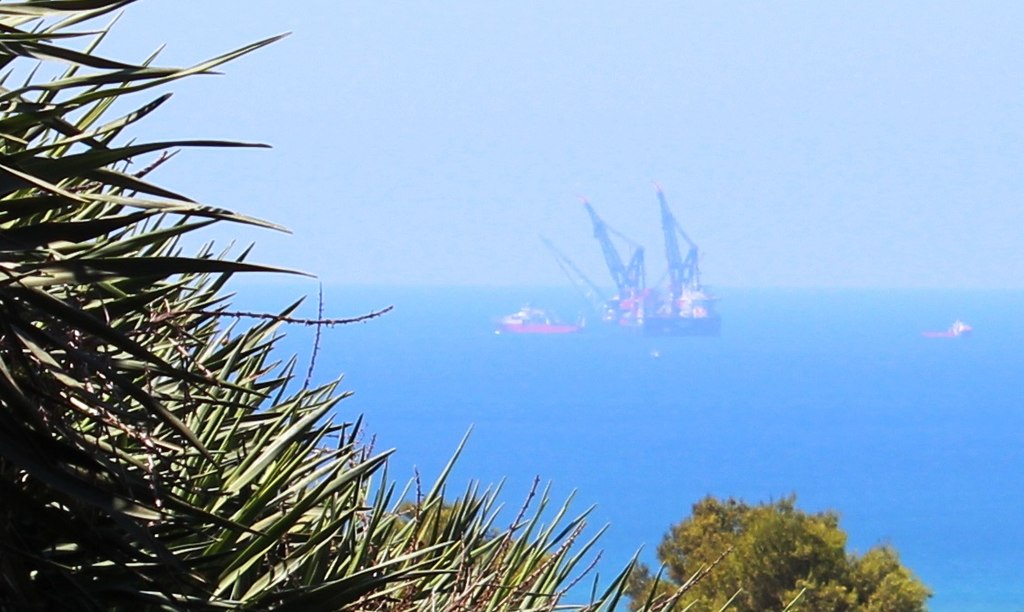Rabidly antisemitic positions of the Arab street must be brought into alignment with the increasingly pro-Israel and pro-Western views of the Sunni Arab rulers

Copyright: Deror Avi [CC BY-SA (https://creativecommons.org/licenses/by-sa/4.0)]
Last week saw the historic debut of the Leviathan natural gas exploitation rig located in the Eastern Mediterranean between the coast of Northern Israel and the island of Cyprus. According to an agreement brokered by the American firm Noble Energy, Israel operates the rig and sells the gas it produces to Egypt and Jordan, with deliveries having already begun.
This development has not been free of controversy as it involves one of the world’s most contested territorial waters and involves a number of potential environmental risks. However, the smooth launch of commercial operations has been generally lauded in Israel and elsewhere in the region.
Yesterday, the notoriously anti-Israel and antisemitic Jordanian parliament passed a largely symbolic resolution calling for the Jordanian government to cancel the agreement and stop the Israeli gas shipments. Today, the speaker of the parliament threatened that should the government fail to comply, it will be toppled.
While these are substantially empty threats because the Hashemite Kingdom of Jordan is an absolute monarchy in which the parliament serves at the pleasure of the king, they do represent the fervently anti-Israeli mood of the “Arab street” and as such must be heeded even by the despotic governments of the region.
It has been an unfortunate fact that the governments of Egypt and of Jordan with whom Israel has had full peace agreements and diplomatic relations for many decades now have done nothing to encourage their respective public opinions to move from open hostility to Israel to at least a somewhat more nuanced stance.
This reflects the general stance of the so-called “moderate” Sunni Arab countries of the Middle East, notably of Saudi Arabia, which wish to both eat their cake and have it left untouched. They wish to benefit from dealing with the West and with Israel and reap from this collaboration significant benefits in American arms sales and improved diplomatic standing on the world stage, but at the same time they prefer that their domestic affairs are governed by fundamentalist Islam, including its intransigent attitude towards Israel and the West in general.
This policy of the Arab ruling elites is hardly a matter of choice for them. They rule over populations that are mired in deeply tribal traditions that have hardly changed since the advent of Islam in the seventh century AD. These folks feel betrayed by consecutive generations of corrupt kleptomaniacal rulers, and not without reason.
Anger towards Israel and the West has long served as the relief valve for popular anger in the Middle East, redirecting it from its real targets, the military and the upper classes. Until that changes, we cannot expect the fundamental security situation in the Middle East to substantially improve and Israel to become fully accepted as an integral part of the region.


